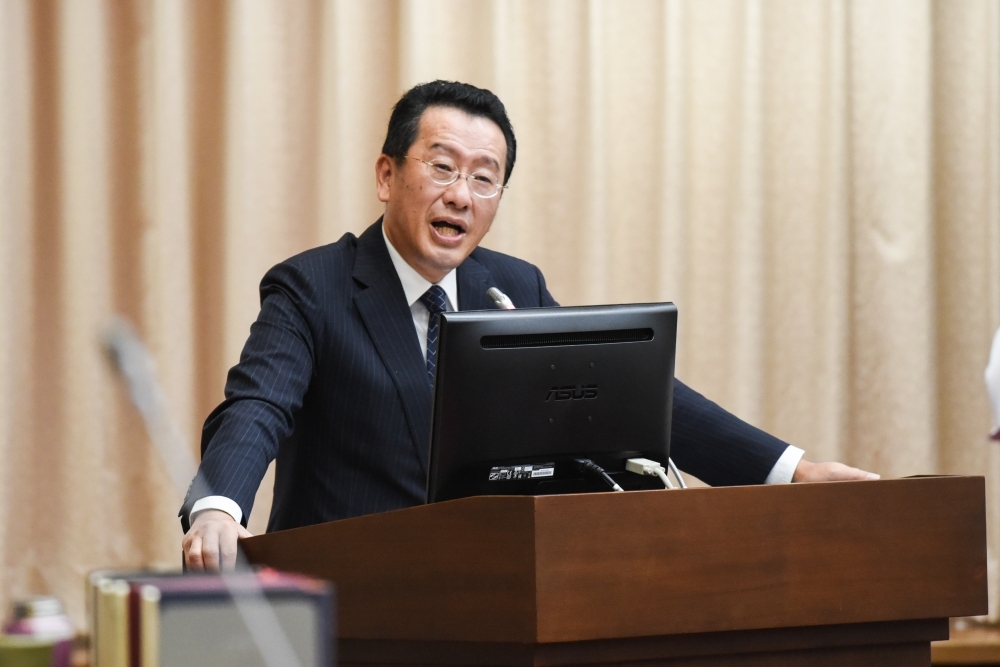上報 Up Media
toggle- 最新消息 《大家論壇》安全視角:當歷史開始押韻 歐洲高度警戒時代將臨 2024-04-19 07:00
- 最新消息 紀永添專欄:日、韓兩國潛艦發展歷程迥然不同 能給台灣什麼啟示? 2024-04-19 07:00
- 最新消息 14年前 我與一位死刑犯加害的受害家屬在課堂上的交會 2024-04-19 07:00
- 最新消息 陳昭如:男人組內閣,女人生小孩 2024-04-19 00:02
- 最新消息 快訊/台北市停電「東區772戶」黑漆漆 恐要等凌晨才能恢復 2024-04-18 22:44
- 最新消息 【花蓮7.2強震】台積電災損發重訊 估Q2「認列損失30億」 2024-04-18 22:29
- 最新消息 【415限電危機】台電「1度砸12元」向請民間發電 台積電未簽約仍可獲補償 2024-04-18 22:25
- 最新消息 遭控收賄17億 中國央行前副行長范一飛當庭認罪 2024-04-18 21:55
- 最新消息 好噁!桃園知名燒臘店驚見活蛆蠕動 衛生局稽查14項缺失 2024-04-18 21:45
- 最新消息 【廢死論辯】「殺人償命還錢天經地義」 犯保協會鑑定報告:判死對家屬是安慰 2024-04-18 21:45
英國啟動脫歐程序,再次激起蘇格蘭獨立呼聲。蘇格蘭可能從英國獨立嗎?或許它終究還是會離開的,但應該不會是在這幾年內。(湯森路透)
過去8年間,英國曾舉辦過兩場全國公投,以及在蘇格蘭舉辦過一場獨立公投。蘇格蘭公投的議題,證明了英國堅實的自由民主。
2016年3月,蘇格蘭首席部長史特金(Nicola Sturgeon) 女士之前曾公開呼籲,如果英國公投之後決定脫歐,則應考慮進行第二次的蘇格蘭獨立公投。結果,英國脫歐公投的結果顯示,有52%的人支持脫歐,其他48%則希望續留歐盟。
但另方面則有62%的蘇格蘭人投票支持英國續留歐盟,只有38%的蘇格蘭人希望脫歐。2016年6月24日,史特金表示,蘇格蘭官方將開始尋求蘇格蘭留在歐盟的可能性,方法之一即是舉辦第二次獨立公投。
英國政府在今年3月29日啟動了歐盟里斯本條約第50條,意即英國將在2019年4月前完成脫歐程序。蘇格蘭舉行第二次獨立公投的可能性也更加明朗化。
蘇格蘭應該成為一個獨立國家嗎
蘇格蘭目前採行雙層代表制。其一為蘇格蘭人民選出的蘇格蘭議會,該議會位於愛丁堡的荷里路德。其二為英國國會下議院的蘇格蘭選區議員。英國國會中蘇格蘭議員的角色,存有某種程度的爭議。這就是眾所週知的希洛席安問題。
意即部分英國國會議員頗為不滿現有蘇格蘭選區議員,竟得以參與國會中無關蘇格蘭議題的表決,而英格蘭選區議員卻對蘇格蘭議會的決定無從置喙。
2014年蘇格蘭獨立公投的結果,在高達85%的投票率中,有55%的蘇格蘭人投票支持續留英國,另有45%的選民選擇脫離英國。儘管蘇格蘭民族黨(SNP)推動脫離英國的努力失敗了,但該黨的支持度卻大幅提升。
2015年英國國會選舉中,蘇格蘭民族黨贏得了蘇格蘭地區59席次中的56席,成為英國國會下議院的第三大黨。工黨則在蘇格蘭選區遭遇慘敗,共失去了40個席次,自由民主黨則失去10席,失去的席次由蘇格蘭民族黨全數囊括。
工黨在蘇格蘭地區的挫敗,不僅表示該黨支持者轉向保守黨,更凸顯蘇格蘭人民期望由一個較支持蘇格蘭獨立的政黨在英國國會為他們發聲。
失敗的承諾
這不必然表示民眾希望蘇格蘭獨立,然而,很明顯地,蘇格蘭人民在公投結果確定將留在英國後,便期盼能在英國政壇得到平等的待遇。蘇格蘭人民在2014年獨立公投時,不斷被告知,他們必須投票支持續留英國,才能留在歐盟。這樣的論點,有助於讓希望留在英國的蘇格蘭人民成為多數,然而,現在已有許多人認為這是一個失敗的承諾,因為最後是英國選擇脫歐,而非蘇格蘭。
歐盟內部也存在許多爭議,部分歐盟國家,尤其是西班牙,並不希望蘇格蘭獨立加入歐盟,因為這可能間接鼓勵了西班牙內部的分離主義(加泰隆尼亞爭取獨立)。
藉由再度舉辦獨立公投,史特金希望蘇格蘭能因此有權簽署國際條約及決定自己的移民政策。她也已向歐盟表達蘇格蘭希望留在歐盟的意願。蘇格蘭政府也已宣布,將確保自2018到2019年間,於蘇格蘭大學進修的歐盟學生免繳學費政策不變。不同於英國政府,蘇格蘭政府已針對英國脫歐之後,繼續留在蘇格蘭的歐盟人民,給予了原有權益單方面的保證。
史特金積極投入為蘇格蘭爭取有別於英國脫歐安排的協商,而這些協商也將影響蘇格蘭民眾對於第二次獨立公投的態度。即使有62%的蘇格蘭人投票支持留在歐盟,但這並不表示這些人都贊成蘇格蘭獨立。許多蘇格蘭人現在雖希望透過獨立而留在歐盟,但也有人認為,蘇格蘭在尚未單獨成為歐盟會員的情況下從英國獨立,之後的處境將非常困難。
史特金雖有機會贏得第二次獨立公投,但這並非是個具有保障的勝利。這也是史特金希望在大家逐漸淡忘2014年關於留在英國才能續留歐盟這個論點前,以及在蘇格蘭人開始接受脫歐前,盡快舉行第二次獨立公投的原因之一。
史特金勢必擔心在未來幾年內,她的政府可能因為其他國內問題而失去民意支持度,也可能因為與脫歐完全無關的因素而在第二次獨立公投中再度落敗。

世界觀非常不一樣
蘇格蘭和英國政府在脫歐議題上不同調的原因很多。英國首相梅伊已經選擇了硬脫歐的方式,這意味英國將離開單一市場,而蘇格蘭則希望能續留在這市場中。梅伊是個保守派,而史特金是個社會主義者,意即他們眼中的世界觀是非常不一樣的。
雖然現在可能不是蘇格蘭舉辦新獨立公投的理想時機,但只要進入脫歐程序,則蘇格蘭二次獨立公投勢將無法避免。梅伊將可能以「在英國和歐盟的新關係明朗化之前,蘇格蘭人民恐怕很難決定他們投票的意象」這項論點,延遲蘇格蘭二次獨立公投的進行。
緩兵之計或許是對的,因為脫歐談判有太多的不確定性,例如如何處理愛爾蘭和北愛爾蘭的邊界問題,以及身為英國的一部分,直布羅陀將如何維持其與歐盟其他國家的關係,
歐盟如何處理這些複雜的安排,對英國一旦離開歐盟後,蘇格蘭因為從英國獨立而得利或失利的分析,也會有不一樣的參考指標。如果蘇格蘭離開英國,而英國不再是歐盟的成員,則會讓原先的蘇格蘭獨立公投議題變得複雜許多。而歐盟也無法再將蘇格蘭和英國其他區視為一體。
至於同時嘗試進行脫歐程序和分裂英國的談判,在任何國家都不可能完全成功。關於蘇格蘭倘若在英國完全脫歐之前投票選擇從英國獨立,則可續留歐盟的想法,將是不可能的。
史特金要求舉行公投,對他的政黨而言,是正確的政治盤算,而梅伊則在英國正式脫歐前,採取了延遲蘇格蘭獨立公投,亦是正確的決定。
蘇格蘭可能從英國獨立嗎?它終究還是會離開的,但應該不會是在這幾年內。
※作者Oliver Wells曾為英國自由民主黨沃金鎮議員,國際自由聯盟青年組織副主席/Emily Wells為英國國際關係和法律學位雙碩士,曾任助理律師。
【熱門影片推薦】
●【影片】金正恩擴大慶祝「太陽節」 日相安倍:北韓擁沙林毒氣
●【影片】《星際大戰》女英雄大集合 迪士尼將於7月推出短篇動畫
投稿《上報》原文如下:
Will Scotland be an independent country in the foreseeable future?
In the last eight years the UK has had two national referendums and an independence referendum in Scotland. The referendum issue in Scotland demonstrates the strength of liberal democracy in the UK.
The Scottish First Minister Ms Nicola Sturgeon firstly publicly stated in March 2016 that a second independence might be considered if the UK voted to leave the EU. The overall result of the EU membership referendum vote was 52% of voters of the UK voted to leave the EU, with 48% voting to stay.
However, 62% of Scottish voters voted to remain in EU, with 38% voting to leave.
On 24 June 2016, Ms Sturgeon said that Scottish Government officials would begin exploring possibilities of staying in the EU, including a second independence referendum.
The UK Government triggered Article 50 of the EU’s Lisbon treaty on 29 March 2017 meaning the UK will leave EU no later than April 2019. Now it is also clear that a second independence referendum could be on the way.
Should Scotland be an independent country?
Scotland has a two-tier representative system. First, there are Members of Scottish Parliament (MSPs) who are individuals elected by Scottish people. MSPs work at a parliament called Holyrood in Edinburgh.
Second, there are Members of Parliament (MPs) who are elected to work in the House of Commons (UK Parliament) in London. There is some controversy surrounding the role of Scottish MPs in the UK parliament. This is known as the West Lothian question.
It is a concern from some MPs that Scottish MPs vote on issues that do not impact on Scotland, but MPs from England can’t vote on issues that are decided at the Scottish parliament.
In 2014, the turnout of the Scottish independence referendum was as high as 85%. 55% of the Scottish voters voted to stay in the UK and 45% of voters voted to leave the UK.
Even though the Scottish Nationalist Party’s (SNP) campaign for leaving for UK had failed, its popularity surged significantly.
At the UK 2015 election, the SNP has won 56 out of 59 seats in Scotland making it the third largest party in the House of Commons. The Labour party experienced a terrible defeat in Scotland as it lost 40 seats while the Liberal Democrats lost 10 seats, all gained by the SNP.
Labour’s defeat in Scotland did not only mean losing power to the Conservatives, it highlighted that the Scottish people were seeking to explore whether a more "pro-scottish-independence party" might represent their views in UK more powerfully and truthfully.
It does not necessary mean people want an independence for Scotland, however, it’s apparent that the Scottish people want to be treated as an equal partner in UK politics in the aftermath of voting to stay in the UK.
The people of Scotland were repeatedly told in the 2014 independence referendum that to stay in the EU they had to vote to stay in the UK. This argument helped give those wishing to keep Scotland in the UK the majority in the vote, however, many now feel this was a false promise because the UK voted to leave the EU, but Scotland did not.
There are many internal battles within the EU. Some EU countries, most notably Spain, do not want to see a country such as Scotland join the EU as it does not want to encourage its own potentially independent regions to seek independence.
In calling for a new independence referendum Ms Sturgeon wants Scotland to have rights to sign international treaties and make its own decision on immigration.
She also already notified EU of Scotland’s desire to stay in the EU. The Scottish Government has also announced that it will guarantee that no tuition fees will be required for EU students who commence their university studies in 2018/2019.
Unlike the UK government, the Scottish Government has signaled a desire to unilaterally protect EU citizens’ rights to stay in Scotland after the UK leaves the EU.
Ms Sturgeon is keen to negotiate a separate deal for Scotland for Brexit and those negotiations will have an impact on how the Scottish public reacts to a second independence referendum.
Although 62% of voters voted to stay in EU in Scotland, it does not mean that those 62% of voters would all vote for Scottish independence. Many Scottish people now want independence so they can stay in the EU, while others are more cautious fearing that leaving the UK will be too difficult without EU membership.
There is a fair chance that Ms Sturgeon might win a second independence referendum, but it is certainly not a fact that she will be assured of victory. No doubt that is partly why Ms Sturgeon wants a second referendum to be held quickly, before the arguments from 2014 are forgotten and before the Scottish people start accepting Brexit.
Ms Sturgeon must also worry that over the coming years her government might lose popularity for other domestic reasons and could lose a second referendum for reasons totally unrelated to Brexit.
There are many reasons why the Scottish and UK governments are not in agreement over Brexit. The UK Prime Minister Theresa May has opted for a so called hard Brexit which means the UK will leave the single market whilst Scotland wants to stay in the single market. Mrs May is conservative and Ms Sturgeon is a socialist meaning they see the world quite differently.
Although now is probably not the right time to plan a new Scottish independence referendum, a second referendum on Scottish independence is almost inevitable once the Brexit agreement is in place.
Mrs May will be able to delay a new referendum arguing that until the details of the UK’s new relationship with Europe is known it will be hard for Scottish people to know what they are voting for.
It is probably right to wait because there are many complexities in the Brexit negotiations, such as how the border between Northern Ireland and Ireland will work and how Gibraltar will fit in with the rest of the EU while staying part of the UK.
How the EU manages these complex arrangements will give an indication of how Scotland could gain or lose from leaving the UK once the UK has left the EU.Many of the questions from the original Scottish independence referendum become much more complex if Scotland leaves the UK and the UK is no longer part of the EU, it is no longer possible to think of Scotland and the rest of the UK as united within the EU.
Trying to negotiate Brexit and the breakup of the United Kingdom would likely be impossible for any country to complete successfully. The idea that Scotland could stay in the EU if it voted to leave the UK before the UK has completed Brexit is unlikely.
Ms Sturgeon made the right political move for her party by calling for a referendum and Ms May made the right decision for Scotland by insisting on a delay while Brexit is concluded.
Is Scotland likely to leave the UK? Eventually it probably will leave, but not for a good few years yet.
熱門影音
熱門新聞
- 《淚之女王》金智媛、金秀賢互飆演技收視破20% 「洪海仁墓碑」劇照瘋傳網憂BE結局
- 《蓮花樓》成毅新劇高馬尾造型曝光帥翻 憑2關鍵奪回藝名聲勢輾壓師兄任嘉倫
- 【《承歡記》內幕曝光】楊紫片酬拿2億演技卻被罵翻 許凱演霸總9千萬輕鬆入袋
- 《與鳳行》林更新公開女友惹怒CP粉 趙麗穎親上火線17字幫忙救場超暖心
- 【韓星片酬大公開】金秀賢拍《淚之女王》因「這理由」降價演出 IU身價輾壓宋慧喬
- 肖戰新劇凝視《惜花芷》張婧儀畫面曝光甜出汁 新片與《在暴雪時分》趙今麥演兄妹超吸睛
- 白敬亭拍趙露思《偷偷藏不住》姐妹作制服照曝光 「這關鍵」帥度不敵陳哲遠
- 《你也有今天》陳星旭新劇抱迪麗熱巴畫面曝光 1關鍵CP感完勝她與《在暴雪時分》吳磊











